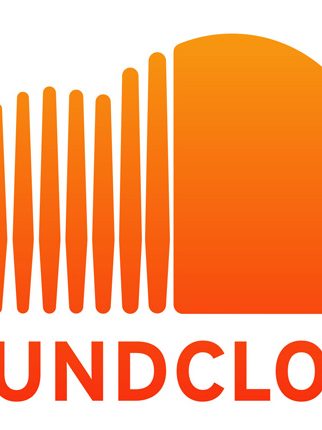What SoundCloud’s Impending Demise Means for the Rest of Us

Like Rocky Balboa, the plucky, slurring underdog and champion of the working man, SoundCloud has fought a valiant fight. Perpetually pummeled in the shadow of a bigger foe and always one hook away from hitting the canvas in a bloody mess, the beloved yet beleaguered lightweight streaming platform has always seemed destined to be felled by a collective super-heavyweight adversary with less heart, but vastly superior technique and abundant clout.
Alas, it seems like we’ve entered the final round of SoundCloud vs. the Recording Industry.
On July 12, news broke that SoundCloud had axed 40 percent of its staff. The report from TechCrunch disclosed that the company has only enough financial runway to take them up to the beginning of Q4 (which, at the time of writing, is only 63 days away). Rinse FM—one of the platform’s flagship accounts—had their music pulled (and then reinstated), which doused gasoline on burning speculation about the company’s health. Morale in their remaining offices is reportedly dire, and there’s an air of finite inevitability that hasn’t been felt since, erm, the last time SoundCloud was on the ropes.
Like Rocky, SoundCloud always fights on. Right?!
In late 2015, SoundCloud was going through a stretch of turbulence that many in the industry (this author included) speculated would turn the rickety vessel into a spectacularly burning wreckage. Major accounts like Dancing Astronaut, Dummy, DIY Magazine and Plastician all had music pulled from the site or their accounts frozen (and then reinstated, and then frozen again, in the case of London’s Radar Radio), a move initiated by Sony Music after it finally decided the platform had one shite Chainsmokers bootleg too many.
The reactionary outrage in the dance community was tempered by the knowledge that SoundCloud wasn’t operating legitimately or sustainably, and that the villainous majors were entitled to come after the company. But by March 2016, the Berlin-based firm had inked deals with Sony, Warner Music Group and Universal Music Group, sparing it from the barbarous legal onslaught that had been coldly promised.
As the company sought to sort itself out, monetization strategies were put in place. SoundCloud had been running ads on the platform since 2014, and after partnering with L.A.-based audio advertising firm Triton Digital, ads for US users—who make up around 75 percent of the platform’s audience—became a lot more ubiquitous. But apparently, they weren’t frequent enough to bludgeon its reportedly 175M users into signing up to go ad-free in the same way Spotify did.
So, here it stands: An exasperatingly zealous valuation of $1B in 2016 has now been whittled down to $250M. Digital Music News reports that SoundCloud has been unsuccessfully searching for a $100M lifeline to keep the lights on after both Spotify and Twitter backed away from acquiring the platform.
But if it all turns out to be as bleak as the reports suggest, what kind of gap would SoundCloud leave in the music industry? The platform is a vast and prodigious Wild West of music: singles, EPs, samplers, bootlegs, live mixes, illegal rips, podcasts, downloads, labels, DJs, producers, communication, curation, A&R. Entire careers, brands and business models have been built upon it. It’s the membrane and “marketplace” of electronic music, and despite being woefully unstable at its foundation, it has been an integral part of propelling our genre into its mainstream global status.
In April 2014, Billboard’s (184K followers, 274 tracks) Director of Dance/Electronic Programming Matt Medved (1,463 followers, 2 tracks) wrote his first feature for the publication. It was about a young Norwegian producer named Kyrre Gørvell-Dahll, better known as Kygo (1.39M followers, 58 tracks), who at that point was riding an unprecedented wave of hype following his breakthrough remix of Ed Sheeran’s “I See Fire,” which now has more than 55M plays.
“Kygo really exemplified the model of SoundCloud success. He completely turned the industry on its head, and had built this crazy following by just uploading bootleg remixes up onto SoundCloud,” explains Medved, himself a DJ/producer who had two official remixes removed from SoundCloud, despite having label support and the rights cleared. “He was getting incredible bookings, and he hadn’t been signed to a label, and he hadn’t released an original song.”
The young Norwegian was able to build an enormous following organically on the platform, posting unlicensed bootlegs and subverting the well-worn paths toward mainstream music industry success. But Medved doesn’t believe this kind of homespun breakthrough will disappear with SoundCloud. He believes it’s a byproduct of our culture’s renegade DNA.
“Dance music is very much a DIY culture,” he continues. “Any kid with a Macbook and BitTorrent could produce industry-standard tunes that, a generation ago, you could only make in a world-class studio, and then they could immediately gain access to a global audience by uploading their music to SoundCloud.”
Then, once on SoundCloud, that music is woven into a vast network for DJs and producers who are all there to source, share and support music from their peers. This sense of a shared community among the acts is further emboldened by the fact that everyone is playing one another’s music.
“I interviewed Galantis (413K followers, 174 tracks)—who have had a lot of success in other genres—and they told me that in no other genre were acts supporting one another, retweeting one another, sharing music, like they do in dance music. You can’t really do that in the same way on Spotify or YouTube. I think that aspect of SoundCloud would prove very difficult to replace.”
For fast-rising Los Angeles–based producer Fritz Carlton (5,645 followers, 25 tracks), SoundCloud has played a crucial role in the development of his career and has been a perpetual source of new music, much of which is discovered via artists he follows reposting what they like and support. “I use the feed every day to find new music,” Carlton—real name Max Huesby—tells Insomniac. “If an artist I love reposts something dope, I’ll follow that guy, look at who he or she is reposting, or go to their follower list and go digging.”
Carlton—who’s set to feature at Insomniac’s (89K followers, 952 tracks) Nocturnal Wonderland this September—has also found SoundCloud to be an unrivaled tool for networking and forming relationships with labels. “Label websites often don’t have demo submission email address. They do it on purpose so that they don’t get spammed with shit tunes,” he explains. “I’ve had a lot of success just touching in with labels through the DMs. It’s not so invasive, and they can take a look at your music, what you like, you know?”
But labels and booking agents using SoundCloud plays and followings to inform talent buying comes with its own set of drawbacks, as the platform has long been plagued by bots and users padding numbers in order to get ahead of the pack.
Take the suspiciously enormous follower count of UK house and garage act T. Williams (3.01M followers, 43 tracks). This is the most blatant example this author has seen of fake followership. Williams’ tracks seldom break 40K plays, his Facebook page has only 25K followers. Yet he has more followers than David Guetta (2.25M followers, 440 tracks), Armin van Buuren (910K followers, 1,282 tracks), and Afrojack (1.57M followers, 190 tracks).
For the record, I’m not in the business of whistleblowing on talented people who juice their clout a little to open the odd door. But Williams’ pursuit of the leg up has, frankly, left him looking ridiculous. This problem is reportedly rampant on SoundCloud, and its demise would completely wipe that slate clean. And if we’re all back to square one, perhaps there’s something extremely liberating and exciting for the fresh new talent.
Either way, it feels very much like the record industry is finally reclaiming its grip on the steering wheel. Disrupted to the point of near-ruin by Napster in the late ‘90s and early ‘00s, record labels big and small struggled to contain a medium of distribution that they’d complacently dismissed as a juvenile fad. But as Spotify, Tidal, Deezer and Mixcloud seem to be providing a direct path toward monetizing music again, SoundCloud’s death could well be lamented as the spectacular end of a brief but exhilarating era when a global cultural movement was formed by sharing free content; a back door to the music industry was pried open, and countless dubstep, trap, house and techno bros mobbed through.
“You can’t lop off heads of the internet and expect them not to grow back,” explains Medved. “There is clearly a huge audience looking for this kind of access to this kind of music, and I have no doubt that something will spring up in SoundCloud’s place soon enough.”
“I really hope they manage to save it! I’ve put a lot of time into curating my feed, building my followers, and learning the tricks of the platform,” laments Carlton. “But at the same time, good music will always find a way to make it through, and I’m always going to be more focused on the tunes, rather than where I find them.”
Look, maybe they’ll be fine. Like Rocky, SoundCloud always fights on. Right?! But its legs are looking heavy, its eyes bruised and bulbous, and its 175M users are standing at the side, towel in hand, ready to put this old dog out of its misery and move on to the next prospect. Let’s just hope we learn to hedge our bets a little better this time around and stop betting the house on the next plucky, good-looking fighter with a vociferous hype man.



